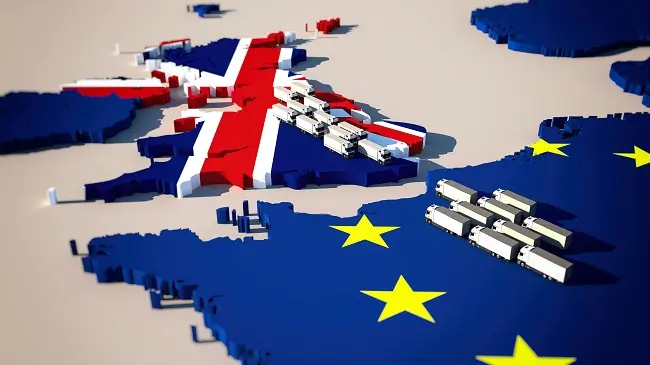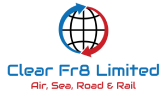Importing Freight from the Netherlands to the UK 2024
Opportunities and Challenges:
The Netherlands and the United Kingdom (UK) have a strong history of trade and economic cooperation. Businesses in both countries often engage in the import and export of goods, making the process of importing freight from the Netherlands to the UK a crucial part of international trade.
In this comprehensive guide, we will explore the various aspects of importing freight from the Netherlands to the UK, with a specific focus on understanding tariff preferences and ensuring successful importation.
Preparing for Import
Understanding the Post-Brexit Landscape
With the UK's exit from the European Union (EU), new customs procedures and regulations now apply to goods moving between the UK and EU member states, including the Netherlands. Businesses must be well-prepared to navigate these changes effectively.
Obtaining an EORI Number
Before initiating imports from the Netherlands to the UK, UK-based businesses must obtain an Economic Operator Registration and Identification (EORI) number. This unique identifier is essential for customs declarations and interactions with HM Revenue and Customs (HMRC).
Customs Declarations
Importing from the Netherlands Post-Brexit
Customs declarations play a crucial role in the import process. When importing goods from the Netherlands to the UK, businesses must provide detailed information about the products being imported. This includes their classification, value, origin, and other relevant details.
VAT and Customs Duties
Businesses must also be aware of the Value Added Tax (VAT) and customs duties that may apply to their imports. VAT is charged on most goods and services in the UK, including imports. Customs duties are taxes imposed on imported goods and are calculated based on factors such as the goods' classification, value, and origin.
Tariff Preferences
The Significance of Tariff Preferences
Tariff preferences are instrumental in reducing customs duties when importing goods from the Netherlands to the UK. These preferences are based on trade agreements between the UK and the EU, as well as the UK's trade agreements with other countries.
3.2 Meeting Origin Criteria
To benefit from tariff preferences, businesses must ensure that the goods they are importing meet the specific origin criteria outlined in the relevant trade agreements. This often means that the goods must be produced or substantially transformed in the Netherlands to qualify for preferential tariff rates.
Documenting Origin
Proper documentation is essential to prove the origin of goods and claim tariff preferences. This documentation may include certificates of origin or supplier declarations, which should be prepared in accordance with the trade agreement's requirements.
The Role of the Statement on the Invoice
Importance of the Statement
One critical element in claiming tariff preferences is the inclusion of a Statement on Origin on the invoice accompanying the imported goods. This statement certifies the goods' origin and declares that they meet the criteria for preferential treatment under the trade agreement.
Documenting the Import
Comprehensive Documentation
Accurate and complete documentation is essential for the smooth importation of goods from the Netherlands to the UK. The required documents may include:
- Commercial Invoice: Providing details of the transaction, including the value of the goods.
- Bill of Lading: Serving as proof of ownership and receipt of the goods.
- Packing List: Detailing the contents of each package or container.
- Certificate of Origin: Certifying the origin of the goods.
Customs Clearance
Facilitating the Process
Customs clearance is a critical step in the importation process. It involves presenting the necessary documentation and paying any applicable customs duties and taxes to enable the goods to enter the UK legally.
Potential Delays
Customs clearance can sometimes be time-consuming, especially if there are discrepancies in the documentation or issues related to the goods' origin. It's essential for businesses to plan for potential delays and ensure that their paperwork is in order.
Transportation and Distribution
Last-Mile Delivery
Once the goods have cleared customs, the next challenge is to coordinate their delivery to their final destination within the UK. This is often referred to as "last-mile delivery" and involves the use of local transportation and distribution services.
Warehousing Options
Businesses may also need to consider warehousing solutions if they require temporary storage for their imported goods. Many logistics companies in the UK offer warehousing services, providing a secure and convenient option for businesses.
Risk Management
The Role of Insurance
Risk management is a crucial aspect of international trade. Businesses should consider obtaining appropriate insurance coverage for their imported goods to protect against unforeseen events or accidents during transit.
Risk Assessment
Conducting a thorough risk assessment is essential to identify potential challenges in the importation process. This includes assessing risks related to transportation, customs procedures, and the political and economic environment.
Cost Estimation and Budgeting
Hidden Costs
Importing freight from the Netherlands to the UK involves various costs beyond customs duties and taxes. These may include storage fees, demurrage charges, and transportation surcharges. A comprehensive budget that accounts for all these expenses is essential for effective financial planning.
Cost Breakdown
Breaking down the costs associated with importing freight allows businesses to understand where their money is going. This detailed breakdown enables them to identify areas for potential cost savings and optimization.
Legal Considerations
Contracts and Agreements
Clear and legally binding contracts and agreements are crucial for businesses engaged in international trade. These contracts should cover aspects such as payment terms, delivery schedules, and dispute resolution mechanisms.
Compliance with Regulations
To avoid legal issues that could disrupt the supply chain, businesses must stay updated on import regulations and compliance requirements. Failing to comply with these regulations can result in fines and delays.
Post-Importation Steps
Record Keeping
Maintaining accurate records of all import transactions is essential for future reference and compliance audits. Proper record-keeping helps businesses track their import activities and ensures they have the necessary documentation on hand when needed.
Disposal of Packaging
Businesses should also consider the responsible disposal of packaging materials used in the importation process. Compliance with environmental regulations is crucial to minimize the impact on the environment.
Conclusion
Importing freight from the Netherlands to the UK is a multifaceted process that requires careful planning, adherence to regulations, and effective risk management. With the changes brought about by Brexit, businesses must navigate customs procedures, understand tariff preferences, and ensure proper documentation to facilitate the importation of goods. By following the steps outlined in this comprehensive guide, businesses can overcome the challenges of importing and reap the benefits of international trade.
In a rapidly changing global landscape, staying informed about trade agreements, customs requirements, and logistics best practices is essential for businesses engaged in cross-border trade. Properly documented imports not only ensure compliance with regulations but also contribute to cost savings and a streamlined importation process.
DOCUMENT REQUIREMENTS
- Certificate of Origin
- Packing List
- Bill of lading
- Commercial Invoice
- Customs Clearance

